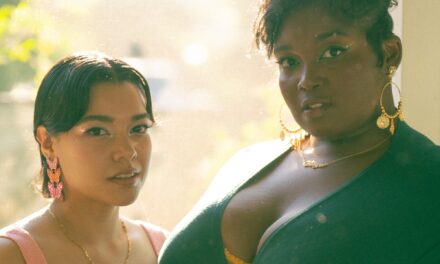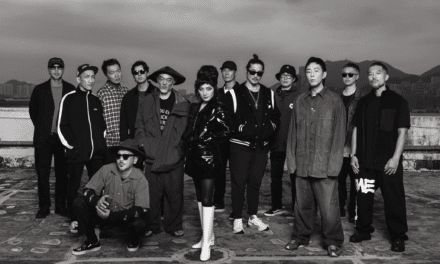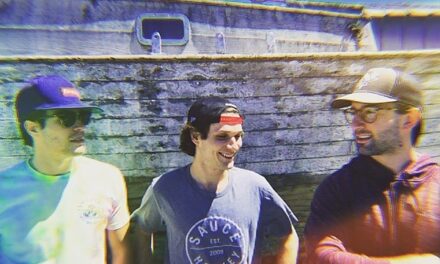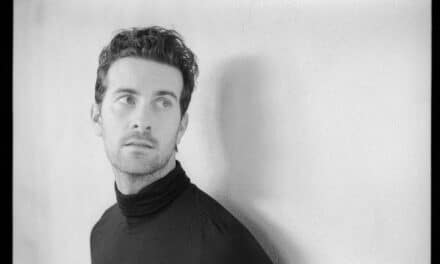Mia Morris is a rock singer, songwriter, and multi-instrumentalist. By age 12, she had a series of viral drum videos on her YouTube channel and amassed over five million views between them. She started writing and recording her own music, releasing over 40 songs, almost all mixed and produced by herself, and has co-written over 100 songs with many notable songwriters, such as Marti Dodson, members of 3 Doors Down, and The All American Rejects.
Tell us about the genesis of your project. How did you get to where you are now?
The genesis of my project as an artist was definitely when I started to pick up and learn additional instruments after mostly focusing on drums in the beginning. After I got decent at being able to play and record all of the parts in various cover songs, I really wanted to make my own music.
How would you describe the highs and lows of being an artist?
This is an interesting question because I’ve spent so much time being a sideman and playing with a ton of different artists. I’ve played with artists who are just starting out, artists on their first record deals, and artists that have had number one hits. Usually, a high for new artists is the fact that they get to play shows in front of people, and a high for a more developed artist or legacy act is either radio charting or actual income. Because I’ve seen the wide range of possible outcomes, I thoroughly enjoy just being able to record and perform music that I’ve created myself. If you don’t appreciate getting to do that, then all of the other highs will wear off no matter where you are in your career. This business is filled with lows if you’re trying to make a lot of money because in the last 20 years, the way musicians make money has changed drastically.
Who are your all time musical icons?
Well it depends if you’re talking about musicians or songwriters. When I first started out on drums, I was fascinated by John Bonham and Stewart Copeland. As I developed more appreciation for songwriting, I became more obsessed with the Beatles and artists like Dave Grohl and Jack White who can actually write a song, play every single instrument, record and produce it, then release it. I’m obsessed with the idea of taking a musical idea from start to finish.
What are some sources of inspiration for you?
I find inspiration in a ton of music. Anytime I hear a great song, see the audience enjoying themselves at a show, or feel anything at all emotionally from a song, I’m inspired. Inspiration can be found pretty much anywhere, but I’m not a fan of waiting for inspiration to write, and I think anybody who’s written a lot of songs has also figured that out. Songwriting is a skill like anything else that is learned through repetition and practice. If you’re going to wait for inspiration anytime you want to write a song, you’re not going to be able to write very many.
Who is an artist that you look up to more than others today?
Typically, I look for inspiration from bands/artists that were around a long time ago. However, there is someone I’ve been listening to recently that is a total musician who can write a great song that works as both a fully produced song or a beautiful acoustic version. He can make modern sounding songs with synthesizers and loops then write a song with all organic instruments. I truly look up to YUNGBLUD because he often shows that a great song is one that can be produced in any way, but still sound amazing just singing it with an acoustic guitar. I also love what YUNGBLUD represents. He is all about being whoever you want to be and accepting everyone’s unique tastes.
Favorite activity to blow off some steam?
If we’re not talking about just smashing the drums then 100% Orange Theory Fitness. I go there like four times a week to blow off steam.
Tell us about your latest release and how it came about.
This song came out of a co-write with Jessica Cayne and Mike Fiorentino. Co-writing goes on all day, every day in Nashville, and I sometimes do a lot of it. I still prefer to write by myself but I go back & forth mostly to meet other writers and to learn anything I can. I came to the write with several song ideas and the opening riff in, “We Were Never Friends” was the one the group was most excited about. Jessica caught on to my general snarky attitude and we all vibed with the title so a song about the old question, “can we still be friends” was the result.
What are some things you do to deal with anxiety and creative blocks?
I’m still working on the anxiety part so I don’t have a great answer for that. Once I’m up on stage and playing, I don’t feel anxious, but when I’m looking at my schedule with the thought that I’m not going to have enough time to prepare for all the shows I have coming up, it’s not a good feeling at all. When it comes to creative blocks, I don’t view them as a bad thing and actually have a few ways to get around it. When you hit writer’s block it could just be a sign that you should drop the song you’re working on and write a new one. Not even half of my ideas or songs will see the light of day, so I’m not precious with the way I go about writing/keeping songs. Another thing that really helps with creative blocks is complete rewrites. I swear rewrites are my best friend because I’ve been able to make entirely different versions of the same song and have even released the different versions. I’ve also taken my favorite part of a song I’ve written and rewrote a new song around that one part. Pretty much I don’t let creative blocks get in the way because they’re unavoidable and happen for a reason.
What’s the future looking like for you?
I’m going to be a fuckin Rockstar. Until then, I’m glad my day job is being a musician.
Who inspires your style and aesthetics?
I feel like I’m influenced by everything I’ve ever seen or heard, even if it’s something that I don’t especially like. Knowing what you don’t like or what you don’t want to be is half the battle of being who you are. I love a lot of the Grunge and 90’s music. Everything from the Beastie Boys, Nirvana, No Doubt, and Rage Against the Machine I love, but I could also listen to Beatles records for weeks at a time. Ultimately, I feel like everyone is influenced by the music that was created before them, and I’m just trying to add small, personal pieces to the kinds of sounds and musical ideas that I fall in love with along the way.
What was the turning point in your carrer?
I think the turning point of my career was making the decision to write, record, and release my first song. That was the moment I began to really take a step back and look at what my career could be. I think everyone who decides to release a song and put themselves out there in that way should be proud of themselves because it’s not easy to do and it’s really special if you ever do it well.
What do you think is the best way to make it as an artist nowadays?
It’s never been easier to get the gear you need to make music but that’s making it harder & harder to distinguish yourself with so much to choose from. Add to that the fact that music is now free and you’ve got a very different music business than ever before. I will say that labels are still the best way to achieve fame, but I have my doubts that they are still the best way for an artist to make a living. Any success starts with developing a core following that loves your art and everything beyond that is just a matter of scale. If you just want to be a singer, you’ll need most of the things a label can provide along the way. If you’ve already figured out how to make music you love, put it out and promote it.
Where do you think the music and entertainment industry is headed after this past year?
I think that no matter what the world is going through, there will always be a demand for music. When people couldn’t see live performances, streaming rates went through the roof. If my upcoming schedule is any indication, live shows are coming back with a vengeance.





